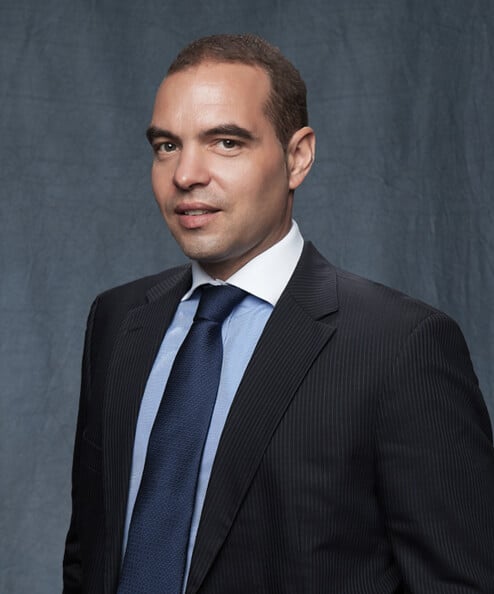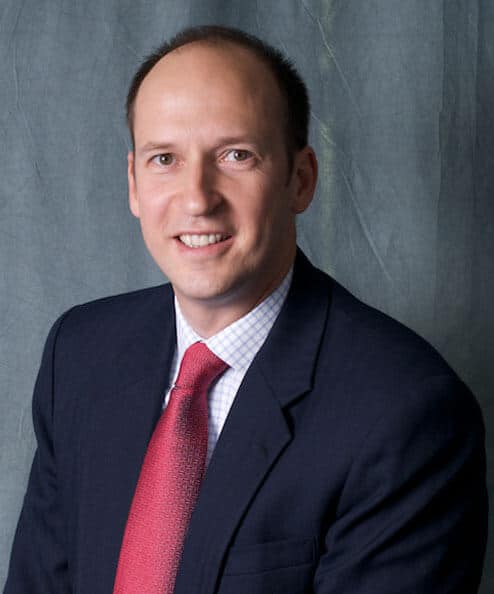Disruption of traditional industries: retail
Biometric customer recognition, virtual reality dressing rooms and the seamless merger of retail with technology, media and entertainment – this is not science fiction, but the reality of consumer retail in Asia. In China, which is responsible for almost half of the world's e-retail sales, every smartphone comes with an app that can display, locate, order and pay for items from any online or retail store.

Retail chains in Asia have moved beyond the standard "bricks and clicks" approach and now combine the benefits of online social interaction with in-store offers. For your birthday, selected WeChat friends can be notified of items that interest you, and retailers will offer a discount on selected items available in your size at the nearest store.
We have discussed innovative approaches with leading retailers in Poland – the heart of Europe – and we conclude that technological developments will fail unless local consumers perceive them as bringing added value. If customers prefer fresh bake-off to self-service checkouts, this is where the supermarket will invest. In Polish towns, customers appreciate a friendly chat with the cashier, whereas people in Asian megacities prefer e-commerce solutions that reduce the burden of heavy traffic and long drives.
In food retail, where margins are very lean and the focus is on freshness and affordability, companies struggle to make a business case for e-commerce in Poland. Most Polish consumers prioritise value for money, and are not interested in revisiting the online food store concept, which was tested 20 years ago with only limited success.

In luxury cosmetics retail, the most relevant trends are innovation in product content, packaging design, branding towards younger audiences, opening up communication channels with younger clients, new media and cooperation with vloggers. Marketing companies are investing in digital solutions to enhance the virtual experience. However, most customers appreciate personalised service, scientifically advanced products and creative packaging design more than omnichannel customer experiences and interactive make-up mirrors.
We have noticed fuel retailers discussing major technological disruptions in the field of transport: consumer behaviour is being shaped by alternative sources of energy, urbanisation, “uberisation,” driverless cars and smart cars. The growing young middle class in markets such as China and India have no driving licenses. Moreover, the rate of driving license applications in Europe is falling dramatically since young people see the advantages of “using and sharing” rather than having their own car and license.
Uber now appears in Google Maps as a transportation option, and will soon be integrated with the Google Calendar, allowing transport to be automatically ordered for you depending on your daily agenda. This service is already offered by Uber's Chinese counterpart Didi, and passengers can even share their real-time location with their contacts through WeChat.
Between electrical cars, Uber and telecommunicating, a major drop in retail fuel consumption is expected over the next 2-10 years. Fuel retailers are looking for creative ways in which to use their real estate portfolio. Filling stations are typically located in places where convenience retailing is the only viable business, and as cars get smarter and smarter, filling stations will need to communicate with the cars more than the drivers. Fuel retailers are currently working proactively with car producers to ensure that this communication will be smooth and seamless.
Finally, technology is a very important driver of the fashion industry. Digital gadgets are no longer "nice to have" but indispensable. Nearly everyone has an online store, and most have some form of digital marketing, with the real challenge being the integration of digital elements to create a genuine omnichannel presence. At international companies, most innovation comes from the head office, with individual countries choosing and implementing the most appropriate approaches, adding local flavour to make sure that the approach fits into the overall country strategy. Fashion e-commerce is growing very fast and drives growth and profit, but is still a small part of the overall revenue, while digital marketing is used to drive both e-commerce and brick and mortar sales. Statistics show that Poland overall is very open to online activities, however the most innovative digital solutions (for example, those that allow for a true "shopping experience" online are not necessarily present). Customers like to combine an online hunt for bargains and hard-to-find items with the experience of visiting stores with friends to touch and try products, followed by a coffee. Even in the digital age, shopping is still a social event.
Courtesy: Agnieszka Mosurek-Zava, Douglas; Giedrius Bandzevičius, Circle-K; Dimitris Dias, Parfois.
 Evita Lune joined Pedersen & Partners in 2005; she is a Partner, the Country Manager for Latvia and Head of the Retail Practice Group. As Partner, Ms. Lune also takes on regional oversight, and through completing numerous senior level assignments, Ms. Lune has established strong cooperation with clients in Poland, the Baltics, Scandinavia, Russia, and CIS across such sectors as: FinTech, Consumer Goods, Retail, Pharmaceutical, Manufacturing, and the Professional Services sectors. Her previous experience includes three years with the Stockholm School of Economics in Riga as the Executive MBA Program Director and six years with Shell in international and regional marketing management functions in Riga, Budapest and Brussels.
Evita Lune joined Pedersen & Partners in 2005; she is a Partner, the Country Manager for Latvia and Head of the Retail Practice Group. As Partner, Ms. Lune also takes on regional oversight, and through completing numerous senior level assignments, Ms. Lune has established strong cooperation with clients in Poland, the Baltics, Scandinavia, Russia, and CIS across such sectors as: FinTech, Consumer Goods, Retail, Pharmaceutical, Manufacturing, and the Professional Services sectors. Her previous experience includes three years with the Stockholm School of Economics in Riga as the Executive MBA Program Director and six years with Shell in international and regional marketing management functions in Riga, Budapest and Brussels.
 Gautier Vasseur is a Partner of Pedersen & Partners, based in the Greater Geneva area. He is a multicultural Executive Search professional who has lived in over 10 countries, and completed hundreds of cross-border assignments for Senior Leadership, Board and Supervisory Board level recruitments. Mr. Vasseur has been with Pedersen & Partners since 2003, developing the firm’s growing presence across CEE, Russia/CIS and APAC out of our respective Prague, Moscow and Shanghai offices. He writes articles on various management topics, and has spoken at numerous conferences on recruitment and leadership issues related to Emerging Markets.
Gautier Vasseur is a Partner of Pedersen & Partners, based in the Greater Geneva area. He is a multicultural Executive Search professional who has lived in over 10 countries, and completed hundreds of cross-border assignments for Senior Leadership, Board and Supervisory Board level recruitments. Mr. Vasseur has been with Pedersen & Partners since 2003, developing the firm’s growing presence across CEE, Russia/CIS and APAC out of our respective Prague, Moscow and Shanghai offices. He writes articles on various management topics, and has spoken at numerous conferences on recruitment and leadership issues related to Emerging Markets.
 Tamás Gönczi is a Client Partner at Pedersen & Partners. Mr. Gönczi joined the firm in 2007 and is currently in charge of developing the firm’s Retail Practice in CEE. He has over a decade of Executive Search experience in the Consumer, Retail, IT/Telecom, Logistics and Building Technology sectors, having previously worked as a Consultant for an international recruitment firm. Prior to entering the Executive Search industry, Mr. Gönczi gained Human Resources management expertise within the Travel, Leisure, & Hospitality industry in Hungary and worked in the Technology sector in San Francisco, USA.
Tamás Gönczi is a Client Partner at Pedersen & Partners. Mr. Gönczi joined the firm in 2007 and is currently in charge of developing the firm’s Retail Practice in CEE. He has over a decade of Executive Search experience in the Consumer, Retail, IT/Telecom, Logistics and Building Technology sectors, having previously worked as a Consultant for an international recruitment firm. Prior to entering the Executive Search industry, Mr. Gönczi gained Human Resources management expertise within the Travel, Leisure, & Hospitality industry in Hungary and worked in the Technology sector in San Francisco, USA.
Pedersen & Partners is a leading international Executive Search firm. We operate 56 wholly owned offices in 52 countries across Europe, the Middle East, Africa, Asia & the Americas. Our values Trust, Relationship and Professionalism apply to our interaction with clients as well as executives. More information about Pedersen & Partners is available at www.pedersenandpartners.com
If you would like to conduct an interview with a representative of Pedersen & Partners, or have other media-related requests, please contact: Diana Danu, Marketing and Communications Manager at: diana.danu@pedersenandpartners.com
